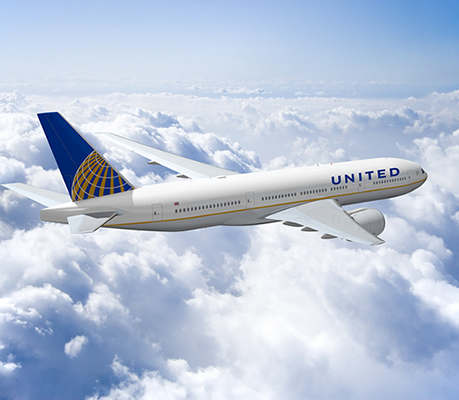
If 2008 was the year of the fee, and 2009 was the year of the deal, 2010 was absolutely the year of the merger. This year we saw one merger of equals—United and Continental—one acquisition—Southwest buying AirTran—and put the finishing touches on the enormous merger of Delta and Northwest. All three events fundamentally reshaped the U.S. airline industry in the near and long term, and all three left many wondering, “what’s next?” Let’s examine the ways these mergers affected the travel landscape, and look ahead to 2011 and beyond.
Dwindling Options
Particularly in the case of United and Continental, passengers may see a reduction in service. The good news is that the two airlines’ respective hubs have little overlap. Many of United’s focus cities—namely Chicago, Washington, D.C., (Dulles), and San Francisco—were lightly served by Continental, meaning Continental customers will experience minimal loss of service there. The same is true for Continental’s hubs in Newark, Houston, and Cleveland.
One city to watch, however, is Los Angeles. LAX is a major destination for both carriers—it was Continental’s fourth-largest destination—and both airlines operate overseas flights to Hawaii and beyond.
As with most major mergers, smaller cities are at greater risk of major service reductions. Basically, travelers living in a spoke city should brace for some reductions in service, if they haven’t occurred already.
Itinerary reduction is less of a concern with the Southwest-AirTran deal, however. Southwest has made it clear that it purchased AirTran solely as a means to grow. Route consolidation will be minimal. Speaking of Southwest…
One Discount Carrier to Rule Them All
Southwest’s acquisition of AirTran was a game-changer for several reasons, namely that it seems to quell any lingering illusions of Southwest as an underdog carrier. Southwest is a dominant, major carrier with a discount product, and its ability and willingness to absorb a large, profitable rival served notice to the competition that Southwest is not content to rest on its laurels.
The effect of the AirTran acquisition, however, is less that it elevates Southwest to top-tier status (it’s already there), but rather that it creates stronger distinction between the top and second tiers. Carriers like JetBlue, Alaska, and even US Airways will lag even farther behind in terms of passengers carried, seat miles available, and revenue.
But as Southwest grows, questions arise about its ability to maintain its position as a reasonably priced, customer-focused carrier. A growing airline incurs escalating costs, after all, and CEO Gary Kelly recently commented that one cost in particular—fuel—can wreak havoc on an airline. It seems likely, though, that Southwest will enjoy the benefits of its acquisition, barring a catastrophic spike in fuel costs.
The Price is …
One of the most commonly heard criticisms of mergers is that they decrease competition and increase prices, but like anything else, the truth isn’t so black-and-white. Still, in many cases, the merger of two airlines is meant precisely to reduce competition, thus giving more pricing power to the combined carrier.
Of this year’s mergers, the United-Continental deal exemplifies this approach. The two carriers merged into the world’s largest airline, which now accounts for roughly 21 percent of domestic capacity. United and Delta control a combined 40 percent of the U.S. market, and the merger reduced the number of global U.S. carriers to four.
The exact effect of price is so far difficult to determine, what with the ink barely dry on the completed deal. As mentioned above, the United merger shouldn’t result in extreme service reductions, and Southwest’s acquisition should have even less effect.
More concerning is the long-term impact of so many major airlines vanishing from the marketplace. With fewer carriers jockeying for our dollars, there’s less incentive to slash fares.
Frequent Flyers Watch and Wait
Neither Southwest nor United has released specific details about their eventual combined mileage programs, but there’s plenty of concern to go around about how the programs will look.
Southwest is taking over a program that, by some measures, is more generous than its own. AirTran A+members can upgrade to business class, which Southwest doesn’t have. However, Southwest Rapid Rewards credits have a longer shelf life—24 months compared to 18—so A+ members pick up a nice benefit there. Both programs award points at a similar pace; it takes eight round-trips to earn a free flight on either airline.
Southwest does seem to be hinting at a major overhaul of Rapid Rewards in the near term, likely coinciding with the closing of its acquisition.
United’s task is a bit more difficult, if only because of the sheer size of its and Continental’s programs. The airline has taken small steps toward aligning the two, but is already suggesting the respective mileage programs won’t be fully integrated until 2012. Still, it seems likely 2011 will be full of changes and announcements about the combined programs.
Of primary concern is the fate of United’s Economy Plus product. Economy Plus is a low-threshold benefit that United frequent flyers currently enjoy, but the airline hasn’t said if it will keep the product and expand it to Continental aircraft or simply scrap it. In the meantime, Continental elites will be able to upgrade to Economy Plus.
Your Take
Readers, what impact do you think these mergers will have in 2011? Will they be good or bad for your wallet?
We hand-pick everything we recommend and select items through testing and reviews. Some products are sent to us free of charge with no incentive to offer a favorable review. We offer our unbiased opinions and do not accept compensation to review products. All items are in stock and prices are accurate at the time of publication. If you buy something through our links, we may earn a commission.
Top Fares From
Today's Top Travel Deals
Brought to you by ShermansTravel
Porto to Lisbon: 7-Nt, Small-Group Portugal...
Indus Travels
 vacation
$1899+
vacation
$1899+
Greenland: Luxe, All-Incl. 11-Nt Exploration Small-Ship...
Swan Hellenic



Ohio: Daily Car Rentals from Cincinnati
85OFF.com





